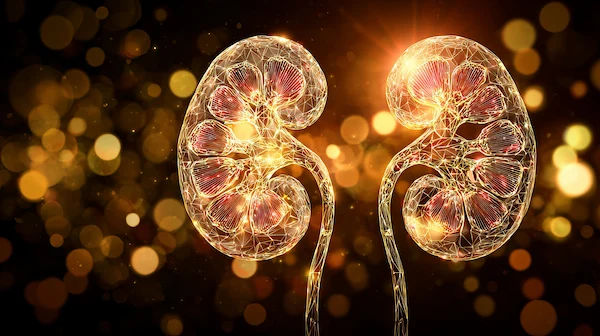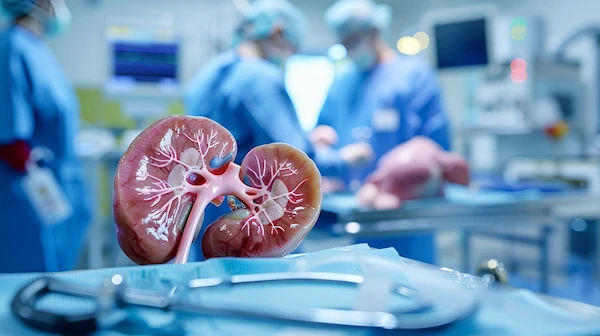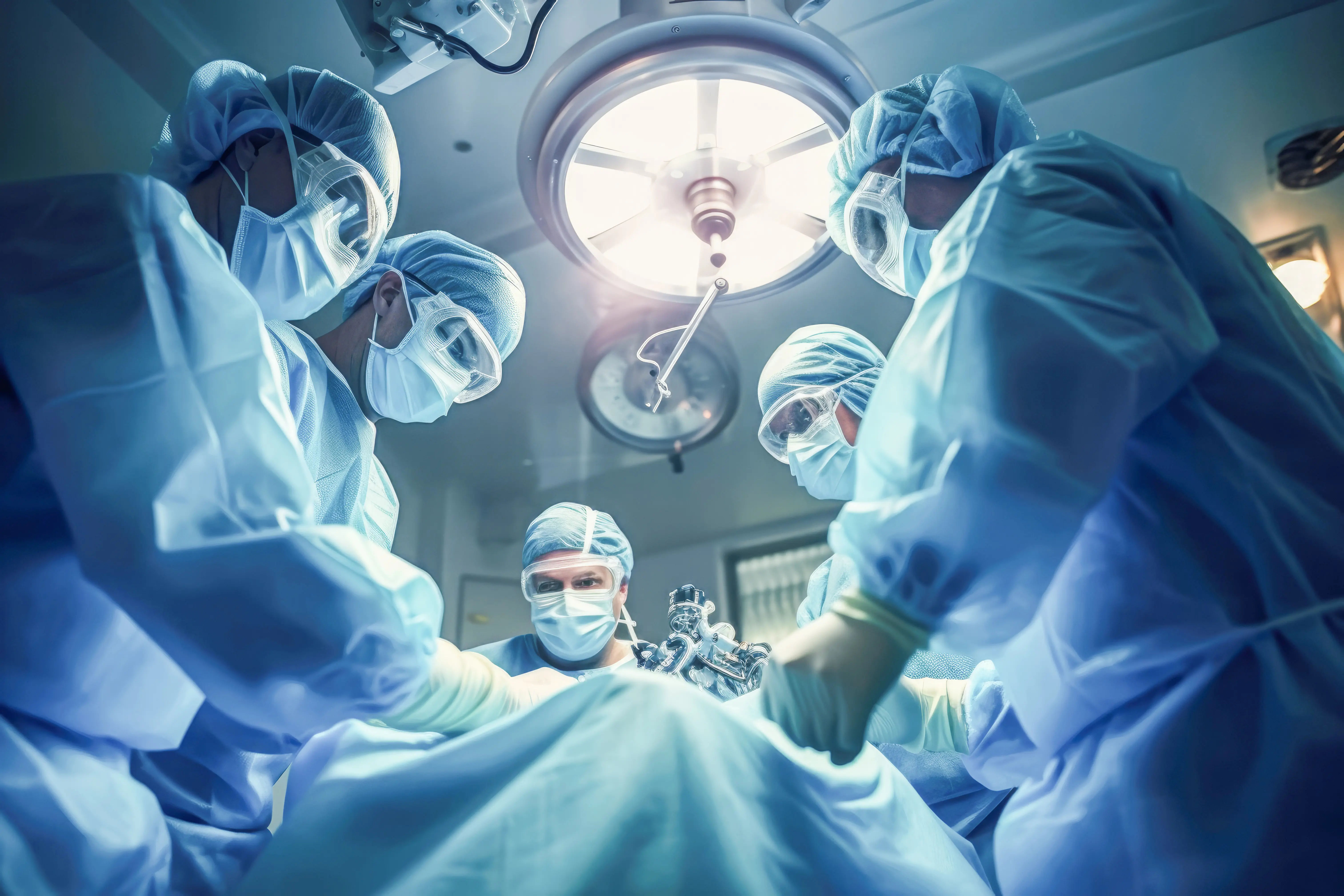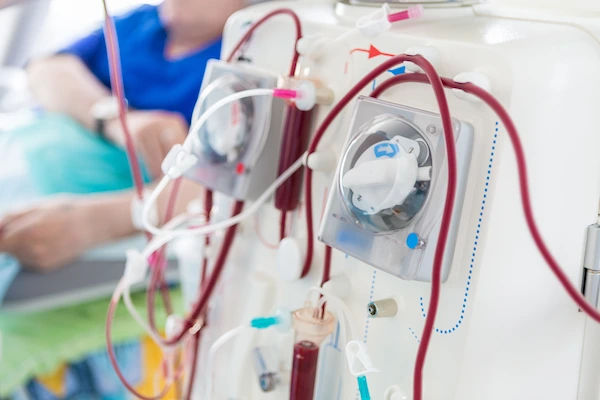What Leads to Kidney Failure? 10 Key Causes and Early Signs
Learn the top 10 causes of kidney failure, from diabetes and high blood pressure to genetic disorders and infections. Understand early warning signs like fatigue, swelling, and changes in urination, plus prevention tips to protect your kidney health.

Written by Dr. J T Hema Pratima
Reviewed by Dr. Rohinipriyanka Pondugula MBBS
Last updated on 13th Jan, 2026

Introduction
Your kidneys are your body's silent, hardworking filtration system, processing nearly 200 quarts of blood daily to remove waste and extra water. But when this vital system starts to fail, the consequences can be severe. Kidney failure, also known as renal failure, isn't usually a sudden event; it's often the culmination of years of underlying damage. Understanding what leads to the signs of kidney failure is the first powerful step toward prevention and early intervention. This guide will demystify the process, breaking down the primary causes—from diabetes and high blood pressure to less common culprits. We'll explore how these conditions silently compromise kidney function and, crucially, identify the early warning signs you should never ignore. By the end, you'll be equipped with the knowledge to protect your renal health and know when to seek professional guidance.
Understanding How Your Kidneys Work
To understand failure, you must first appreciate the intricate job your kidneys perform. These two bean-shaped organs, located just below your rib cage, are sophisticated filtering plants.
The Nephron: The Key Functional Unit
Each kidney contains about a million tiny filters called nephrons. Each nephron consists of a glomerulus (a cluster of tiny blood vessels that filters your blood) and a tubule (which returns needed substances to your blood and removes wastes). The health of these nephrons is directly linked to your overall kidney function.
The Two Pathways to Kidney Failure
Kidney failure typically manifests in one of two ways:
Acute Kidney Injury (AKI)
This is a sudden, often reversible drop in kidney function, occurring over hours or days. It's commonly caused by severe infection, drastic drop in blood flow (from dehydration or blood loss), or direct damage from toxins or medications.
Chronic Kidney Disease (CKD)
This is the slow, progressive, and irreversible loss of kidney function over months or years. It's this gradual process that we will focus on, as it accounts for the majority of kidney failure cases. CKD is staged from 1 (mild) to 5 (end-stage renal disease, or failure).
The Top Causes of Chronic Kidney Disease and Failure
The journey to kidney failure is most frequently paved by a handful of chronic conditions.
1. Diabetes (Diabetic Nephropathy)
Uncontrolled diabetes is the number one cause of kidney failure globally. High blood sugar levels damage the delicate blood vessels in the glomeruli. Over time, this scarring impairs the kidneys' filtering ability, allowing protein to leak into the urine (a condition called proteinuria), which is a key early sign.
2. High Blood Pressure (Hypertensive Nephrosclerosis)
Hypertension acts like too much pressure through a garden hose; it damages the blood vessels throughout the body, including those in the kidneys. This relentless force strains the nephrons, reducing their efficiency and eventually leading to sclerosis (hardening) and failure.
3. Glomerulonephritis
This is a group of diseases that cause inflammation and damage to the kidney's filtering units (the glomeruli). It is one of the most common kidney diseases that can lead to failure and can sometimes occur after infections like strep throat.
4. Polycystic Kidney Disease (PKD)
PKD is a common inherited kidney disorder characterized by the growth of numerous cysts filled with fluid in the kidneys. These cysts enlarge the kidneys, disrupt their structure, and ultimately lead to a decline in function.
Other Significant Risk Factors and Causes
Beyond the top causes, several other factors can contribute to renal decline.
Chronic Urinary Tract Obstructions
Prolonged blockages from conditions like an enlarged prostate, kidney stones, or certain cancers can create backpressure on the kidneys, damaging the nephrons over time.
Recurrent Kidney Infection (Pyelonephritis)
While a single kidney infection is treatable, recurrent infections can cause lasting kidney damage and scarring, which may contribute to chronic kidney problems.
Prolonged Use of Certain Medications
Long-term, high-dose use of some over-the-counter pain medications (like NSAIDs - ibuprofen, naproxen) and certain other drugs can be toxic to the kidneys. Always use medications as directed and discuss long-term use with a doctor.
Recognizing the Signs and Symptoms of Failing Kidneys
Kidney disease is often called a "silent" illness because symptoms may not appear until significant damage has occurred. Knowing the signs is crucial.
Early Warning Signs
Fatigue and Trouble Concentrating: A buildup of toxins and impurities in the blood can cause you to feel tired, weak, and have difficulty focusing.
Swelling (Edema): failing kidneys can't remove extra fluid and sodium, causing swelling in your ankles, feet, hands, and face, particularly around the eyes in the morning.
Changes in Urination: This is a hallmark sign. Look for foamy urine (indicating protein), urinating more or less often, or blood in the urine (hematuria).
Advanced Symptoms
As function declines further, symptoms become more severe and can include:
Persistent Nausea and Vomiting
Loss of Appetite and Metallic Taste in Mouth
Severe Shortness of Breath (due to fluid buildup in the lungs)
Skin Rash and Itching (from mineral and bone disease)
Diagnosis: How Kidney Failure is Detected
Early detection hinges on simple tests. If you have risk factors, regular screening is essential.
Blood Test: The serum creatinine test estimates your glomerular filtration rate (eGFR), which measures how well your kidneys are filtering blood.
Urine Test: The albumin-to-creatinine ratio (ACR) test checks for albumin (a type of protein) in your urine, a key sign of kidney damage.
Imaging: Ultrasounds or CT scans can check for abnormalities in the size and structure of the kidneys.
If you have diabetes, hypertension, or a family history of kidney disease, consult a doctor online with Apollo24|7 to schedule these simple screenings. Apollo24|7 offers convenient home collection for tests like eGFR and ACR, making monitoring your kidney health easier.
Prevention and Slowing Progression
While not all kidney failure is preventable, you can drastically reduce your risk.
Manage Underlying Conditions: Tight control of blood sugar (if diabetic) and blood pressure is the most effective strategy.
Adopt a Kidney-Healthy Diet: Reduce sodium, processed foods, and protein intake if advised by a doctor.
Stay Hydrated: Drink plenty of water throughout the day.
Avoid Nephrotoxins: Use NSAIDs sparingly and never exceed the recommended dose. Avoid smoking and limit alcohol.
Exercise Regularly: Maintain a healthy weight to reduce strain on your body's systems.
Conclusion
The path to kidney failure is most commonly paved by long-standing, manageable conditions like diabetes and high blood pressure. The damage occurs silently, which is why understanding the causes and recognizing the early, subtle signs—from unexplained fatigue and swelling to changes in urination—is a critical aspect of personal healthcare. While the prospect of renal failure is serious, it is often not inevitable. Proactive management of risk factors, a healthy lifestyle, and early detection through regular check-ups are your strongest defenses. If you identify with any of the risk factors or symptoms discussed, do not wait. Taking action today can preserve your kidney function and protect your overall health for years to come.
Frequently Asked Questions (FAQs)
1. What are the first signs of kidney problems?
A.The very first signs are often subtle and include increased fatigue, difficulty concentrating, trouble sleeping, puffiness around the eyes in the morning, and increased need to urinate, especially at night. Foamy urine can also be an early indicator of protein leakage.
2. Can damaged kidneys heal?
A.The nephrons in your kidneys cannot regenerate or be replaced. However, if caught very early, the progression of damage from conditions like diabetic kidney disease can often be slowed, stopped, or even slightly improved with aggressive treatment of the underlying cause. Acute Kidney Injury (AKI) can sometimes be reversed if treated immediately.
3. How long can you live with kidney failure?
A.Life expectancy with end-stage renal disease depends on the treatment chosen. With dialysis, many people live for 5-10 years or more, though this varies greatly with age and other health conditions. A kidney transplant can offer a longer lifespan and a better quality of life.
4. Is kidney failure painful?
A.Kidney failure itself is not typically painful. However, some of the symptoms associated with advanced failure, such as bone or joint pain, muscle cramps, and the discomfort from fluid overload, can be painful. The procedures for treatment (dialysis access, injections) can also involve some pain.
5. What is the life expectancy for someone with stage 4 kidney disease?
A.Life expectancy with stage 4 CKD (severely reduced kidney function) varies widely based on age, overall health, and how well the underlying causes are managed. With proper treatment and lifestyle changes, many people live for many years without progressing to stage 5 failure. A nephrologist can provide the most accurate prognosis based on individual factors.
Consult a Nephrologist for the best advice
Consult a Nephrologist for the best advice
Dr Gayatri Pegu
Nephrologist
15 Years • MD (General Medicine) DM(Nephrology)
Guwahati
Apollo Clinic Guwahati, Assam, Guwahati
Dr Ch Sashidhar
Nephrologist
20 Years • MBBS, MD General Medicine, DNB, Nephrology
Secunderabad
Apollo Hospitals Secunderabad, Secunderabad

Dr. Pardha Saradhi
Nephrologist
9 Years • MBBS, MD-DNB (Gen. Med.), DNB (Nephro)
Hyderabad
Apollo Hospitals D R D O kanchanbagh, Hyderabad
(75+ Patients)

Dr Praveen Kumar Etta
Nephrologist
10 Years • MBBS,MD DM(SGPGI) FORMER ASST(PIMS)
Hyderabad
Apollo Spectra Ameerpet, Hyderabad

Dr. Manju Kamal
Nephrologist
12 Years • MBBS,MD(General Medicine), DNB,DM(Nephrology)
Angamaly
Apollo Hospitals Karukutty, Angamaly




.webp)